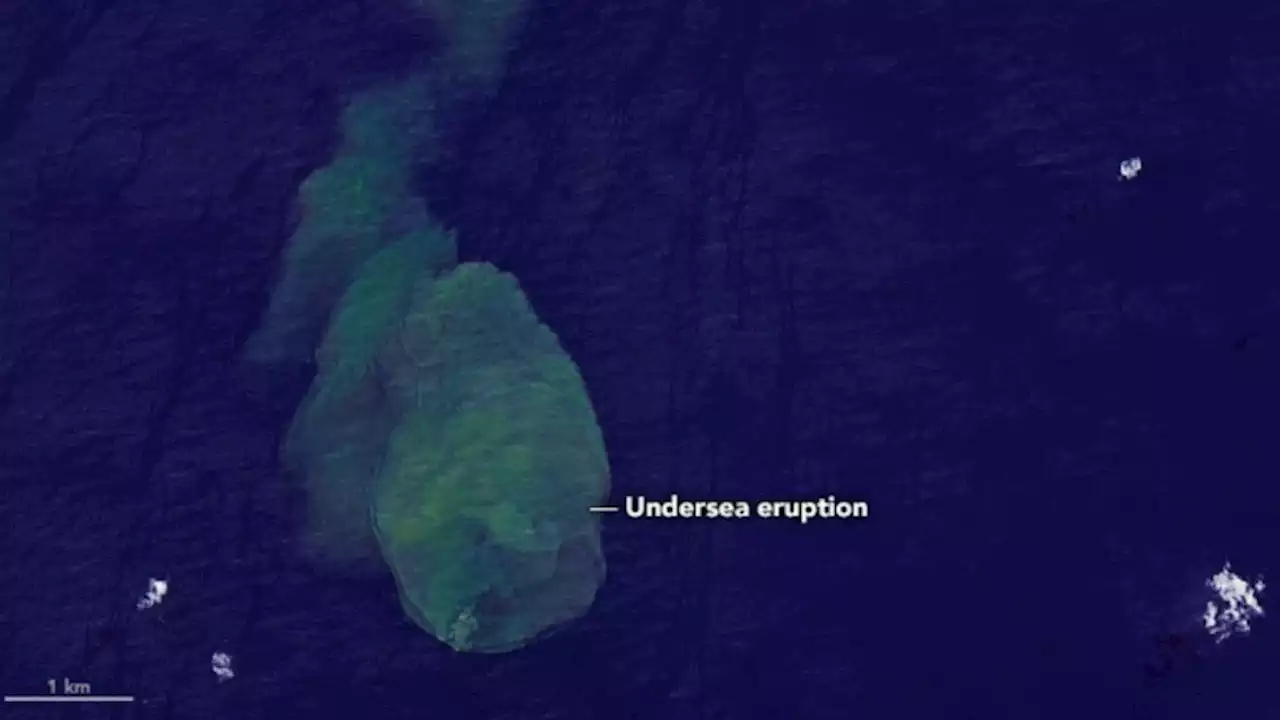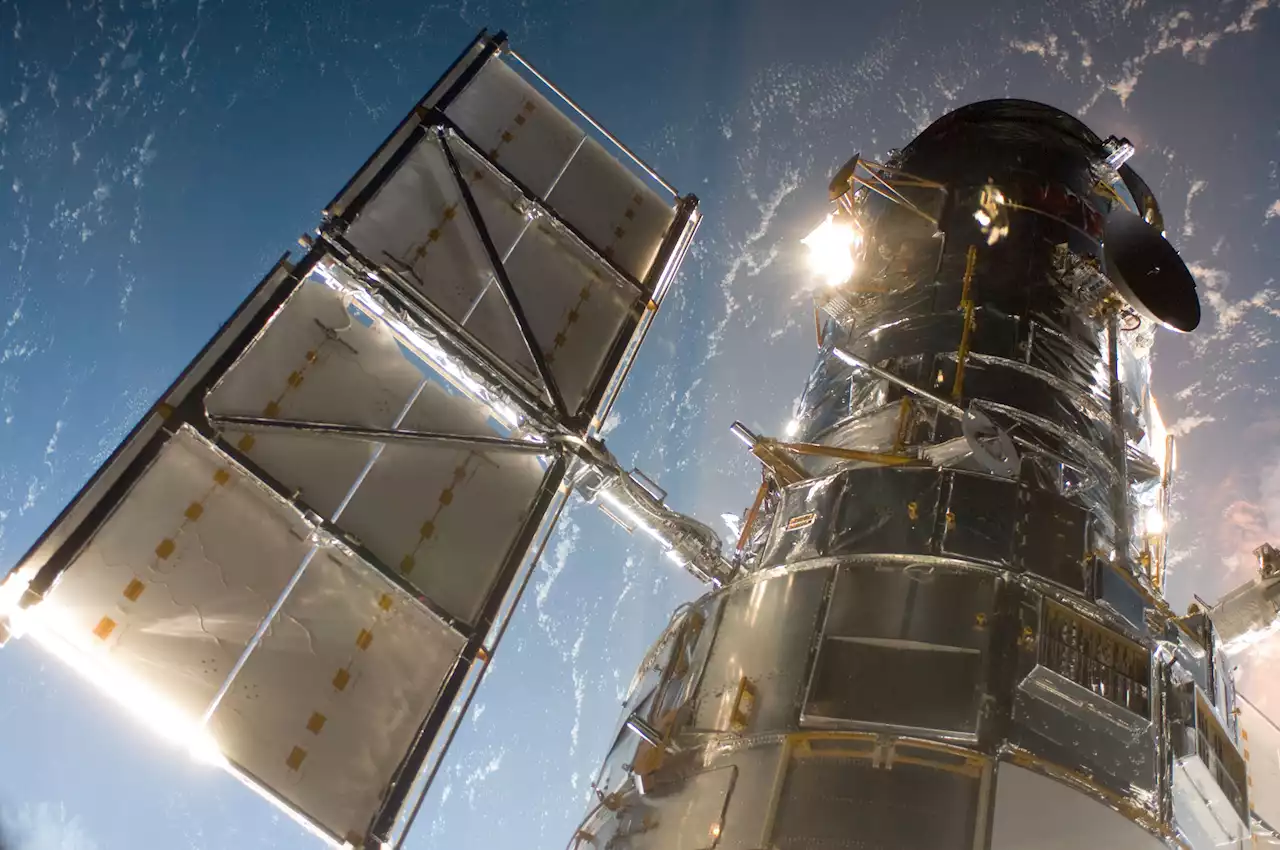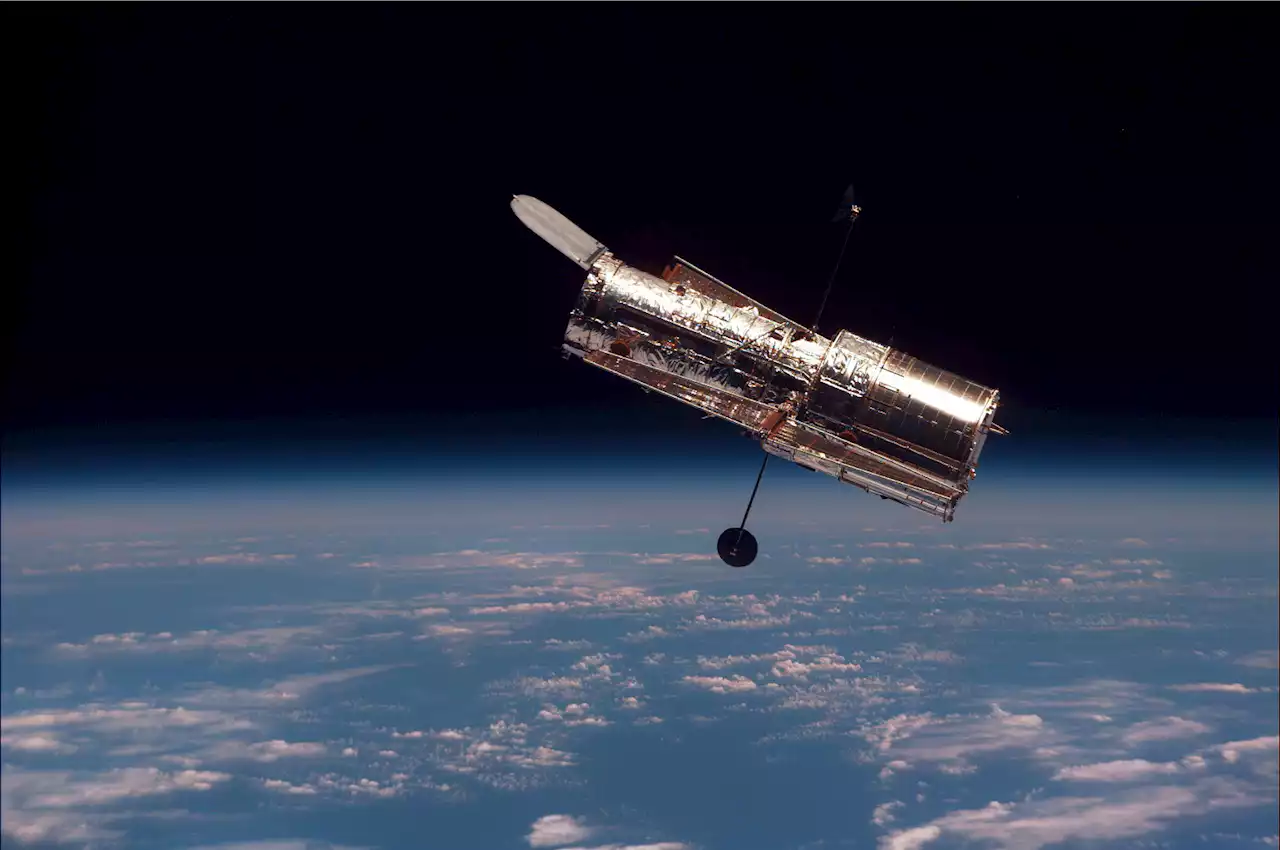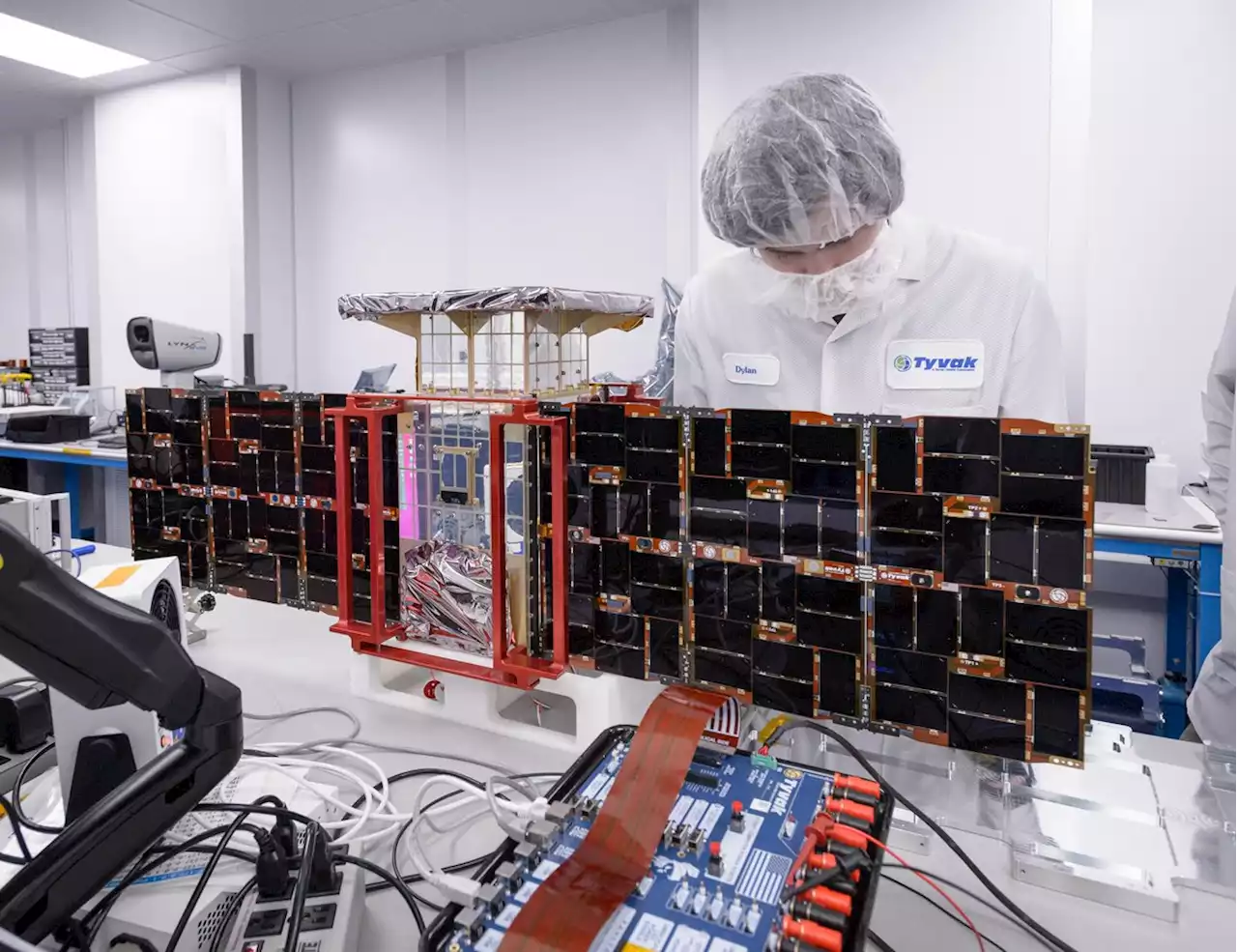The underwater volcano near the Solomon Islands is known as a 'sharkcano' because of the sharks that live there, withstanding the volcano's extreme temperatures.
Temperatures inside the crater would often reach 100 degrees Fahrenheit.
“Populations of gelatinous animals, small fish, and sharks were observed inside the active crater, raising new questions about the ecology of active submarine volcanoes and the extreme environments in which large marine animals can exist,”The volcano’s constant eruptions have been recorded since 1939 and resulted in the creation of small islands nearby.Our journalism needs your support.
United States Latest News, United States Headlines
Similar News:You can also read news stories similar to this one that we have collected from other news sources.
 A NASA satellite snapped an image of the 'Sharkcano' volcano eruptionAn earth satellite captured images of an undersea volcano erupting in the Solomon Islands. What is the connection with sharks, though?
A NASA satellite snapped an image of the 'Sharkcano' volcano eruptionAn earth satellite captured images of an undersea volcano erupting in the Solomon Islands. What is the connection with sharks, though?
Read more »
 NASA Just Captured an Undersea Volcano Eruption, And They've Dubbed It 'Sharkcano'Kavachi Volcano, an active submarine volcano in the Solomon Islands, has long been home to sharks. However their once-peaceful playground in the southwest Pacific Ocean recently became a bit less serene.
NASA Just Captured an Undersea Volcano Eruption, And They've Dubbed It 'Sharkcano'Kavachi Volcano, an active submarine volcano in the Solomon Islands, has long been home to sharks. However their once-peaceful playground in the southwest Pacific Ocean recently became a bit less serene.
Read more »
 NASA shares stunning Hubble photo of two galaxies locked in a danceNASA shared a new Hubble image of two galaxies locked in a dance, raising more questions about the star formation rate in aging galaxies.
NASA shares stunning Hubble photo of two galaxies locked in a danceNASA shared a new Hubble image of two galaxies locked in a dance, raising more questions about the star formation rate in aging galaxies.
Read more »
 SEE IT: NASA releases final photo of solar-powered InSight lander on MarsA final photo of NASA's robotic lander on Mars showed the solar-powered machine coated in rust-colored Martian dust.
SEE IT: NASA releases final photo of solar-powered InSight lander on MarsA final photo of NASA's robotic lander on Mars showed the solar-powered machine coated in rust-colored Martian dust.
Read more »
 Picture NASA took on my birthday shows photos from date you were bornThe images captured by the pioneering Hubble Space Telescope have sparked wonder for decades.
Picture NASA took on my birthday shows photos from date you were bornThe images captured by the pioneering Hubble Space Telescope have sparked wonder for decades.
Read more »
 NASA Supports Small Business Research to Power Future ExplorationNASA has selected hundreds of small businesses and dozens of research institutions to develop technology to help drive the future of space exploration, ranging from novel sensors and electronics to new types of software and cutting-edge materials.
NASA Supports Small Business Research to Power Future ExplorationNASA has selected hundreds of small businesses and dozens of research institutions to develop technology to help drive the future of space exploration, ranging from novel sensors and electronics to new types of software and cutting-edge materials.
Read more »
